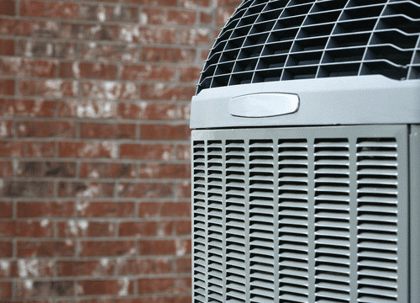Air Conditioning and the Environment
While air conditioning (AC) has gone from a modern convenience to a necessity, AC systems have the potential to harm the environment. Air conditioning systems typically rely on cooling fluids to refrigerate the air.
These fluids are:
- CFCs (chlorofluorocarbons)
- HCFCs (hydrochlorofluorocarbons)
- Or HFCs (hydrofluorocarbons)
Older systems utilized CFCs and HCFCs. Unfortunately, CFC and HCFC fluids can react with the ozone layer, making it harder for the ozone layer to protect us from the harmful effects of the sun.
In response to the problems associated with CFCs and HCFCs, newer equipment is being made to use HFCs (hydrofluorocarbons) that do not contain harmful chlorine. The use and production of CFCs ceased after 1995. However, while the US is currently working to phase out HCFCs' production (and use), we aren't quite there yet.
Your HVAC system can account for more than half of your electricity usage and this is especially true in the summer months when you rely on your air conditioner to keep your home cool and comfortable.
As your system ages, it becomes less efficient, requiring more power to run, costing you money, and further contributing to greenhouse gas emissions. Furthermore, older systems are more prone to leaking, resulting in coolant escaping into the environment.
So, what can you do to combat these issues?
Tips for Improving the Efficiency of Your HVAC System
With rising energy costs and increased concern for the environment, many people are looking for ways to make their homes more energy-efficient and eco-friendly. As the most-used system in the house, your HVAC system is a great place to start and an area where you can make a real impact. At Valley Heating, Cooling, Electrical and Solar, we too are concerned about our environment. Below we have provided three helpful tips for making your HVAC system more eco-friendly.
Tip #1: Reduce Your Reliance on Your AC
Though we need our AC systems to keep our homes at a reasonably cool temperature during the summer months, there are a few things you can do to maximize your cooling system.
Ways to reduce reliance on your AC include:
- Utilize fans to maximize airflow
- Keep your blinds and curtains closed during the hottest part of the day
- Open your windows overnight when the temperature drops to encourage cool air to flow through your home
- Turn off your lights during the hottest part of the day
- Install blackout blinds or curtains to keep the sun from heating your home
- Avoid using your oven during the hottest part of the day
- Make sure your home is well-insulated
- Seal and balance your air ducts
Another great way to reduce how much you use your air conditioner is to set the temperature a few degrees warmer than you initially think you need. When it is very warm outside, your AC works overtime to keep your home cool. However, we don't need our AC set to 68 degrees to feel comfortable.
Setting the thermostat to 72-74 degrees will provide plenty of relief from hot outside temperatures without making your AC work as hard, leading to less energy use.
Tip #2: Keep Your System Well-Maintained
As mentioned above, your air conditioning system utilizes cooling fluids to produce cold air. While you are unlikely to have a system that uses CFCs, it may still use HCFCs. If your system utilizes HCFCs and is out of condition, it may leak fluid. This is bad news for your system and the environment. To protect your system and the earth, you should have your AC checked annually.
During your annual inspection, our AC maintenance technician will clean your unit, replace air filters, and review the entire system, noting any repair problems or if there are parts that may be wearing out. Being proactive about your AC maintenance can save you money on AC replacements as well – a well-maintained system will last longer and can prevent the need for premature replacement.
Tip #3: When It's Time to Replace, Choose an Eco-Friendly Model
Most air conditioners last anywhere from 10 to 20 years. The average homeowner can expect to get around 15 years out of their air conditioner. When it's time to replace your AC, you should look for a new model that is highly efficient and Energy Star certified.
Using guidelines established by the Environmental Protection Agency (EPA), Energy Star products are some of the best on the market and can help you positively impact the environment.
Similarly, if you choose to purchase room air conditioners instead of central air systems, you will also want to buy an Energy Star-certified product. It is equally important that these air conditioners be correctly sized for the rooms in which they will be installed to ensure that energy is not being wasted.
Are you concerned about the impact your AC is having on the environment? Contact our team to schedule an HVAC inspection with our team today! Our experts are ready to help you make your home comfortable and more energy-efficient.

